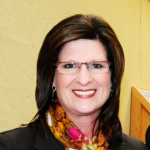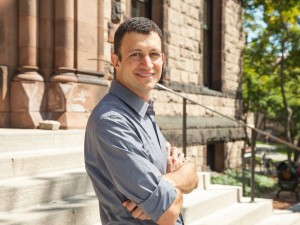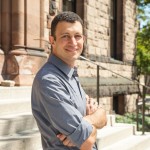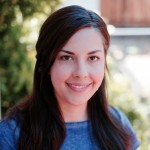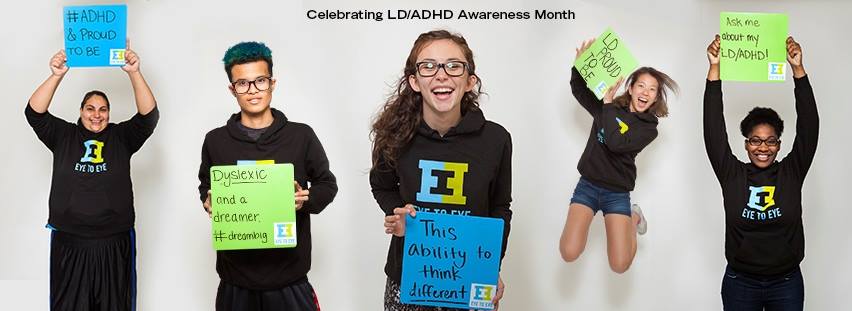
As the month of October and Learning Disabilities / Attention Deficit Hyperactivity Disorder (LD / ADHD) Awareness Month draws to a close, I have been thinking a lot about how our teams here at OSERS are strengthened by people who have different skills, different knowledge, and different approaches to problems. We don’t all think alike which brings strength to our work. I’d like to introduce some amazing students with LD / ADHD who think differently and bring strength to our society.
Recently, David Flink, Founder and Chief Empowerment Officer of Eye to Eye, authored a guest blog on the OSERS blog spot. In his post, David emphasized the importance that awareness plays in breaking stigma and building understanding around diverse learning needs. David frames learning disabilities and LD / ADHD awareness in the following terms, “We like to think, ‘It’s not a learning disability, it’s this ability to think differently.’” In his post, David talked about his own 5th grade reading struggles. Over the years, stories from his teachers and others who had LD and ADHD helped him succeed. He knew youth with learning disabilities needed hope, and they needed strategies for success. They needed mentors.
David founded Eye to Eye as a national mentoring organization run by people with LD / ADHD for people with LD / ADHD. The organization recently launched a National Share-Ability Campaign, which highlights the authentic experiences of students with LD / ADHD. If you’ve been in Times Square lately, you might have seen a giant screen “spectacular” sharing a story. Or maybe you know a student who has had a quiet, personal, one-on-one conversation: many have happened in classrooms and homes across the country.
As part of their Share-Ability Campaign, Eye to Eye asked their college-aged mentors across the country, “What would you like to share about your abilities as a different thinker?” OSERS features those kids’ inspirational answers here—positive messages by self-advocates who wanted to help others by telling their own story.
We welcome you to read their experiences and invite you to share your own.
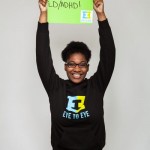 Chelsea Bennett, Knox College
Chelsea Bennett, Knox College
As a different thinker, I have been able to learn more about myself. Not only have I learned how to navigate my ADHD and explore how I learn best, I have also been able to learn great things about myself. My ADHD may be a challenge, but it has also taught me to enjoy the quirky, hyper, fun-loving person that I am because that is what makes me unique!
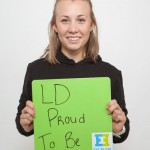 Katy Demko, University of Pittsburgh
Katy Demko, University of Pittsburgh
Some people think my ADHD should hold me back, but I think it pushes me even more! It took me a while to figure out how I learn and it was a lot of trial and error. But I have come to realize that it is not a learning disability—I just learn differently.
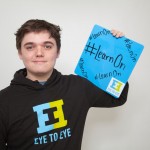 Josh Dishman, Radford University
Josh Dishman, Radford University
My disabilities actually give me strength to work even harder towards a goal. Growing up, I was labeled as the wild, energetic kid who could never pay attention in class, which led many to believe that I was an idiot. As I grew up, I learned that having ADHD didn’t make me stupid, it just meant I had to work a little harder. I may have not been attentive enough to read a book, but if I listened to the book on audio, I was able to lead the class discussion on the novel.
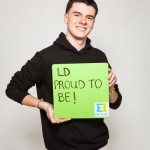 Chris Gorman, Hobart and William Smith Colleges
Chris Gorman, Hobart and William Smith Colleges
I think that having ADHD allows me to approach problems differently. While most people would look to reach point D by going from A to B to C and then D, I always bounce around the problem. This lets me approach problems from a different angle and look at something in a totally different light than most people would.
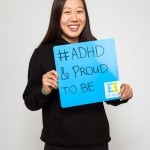 Caroline Lee, Boston College
Caroline Lee, Boston College
As a different thinker, I can get lost on the way to class, forget where I put my textbook, and mix up my 10 AM class with my 12 PM class. But I still know that I have a valuable mind that can learn and approach things in interesting and meaningful ways.
 Luz Madrigal, UC Irvine
Luz Madrigal, UC Irvine
My ADHD brain is like a computer with a lot of different windows open all at once, and they are all functioning at the same time. I am a bit slow at learning new things just because I pay attention to too many details, but once I learn the task at hand, I tend to be above average in speed at that same job that took me longer to learn. I make sure I slowly learn everything, and once I do, WAM…I am extra efficient because I am a great multi-tasker! ADHD is pretty cool if you ask me.
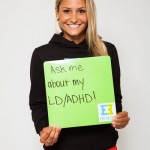 Brianna Malin, University of Illinois at Urbana-Champaign
Brianna Malin, University of Illinois at Urbana-Champaign
I am a different thinker and I am very proud of it. Living with an LD and ADHD has helped me gain confidence and motivation to succeed in anything I do. I have determination, drive, and dedication to always do my best to reach my goals. This has also helped me to be resilient in the face of any obstacle. I am very grateful to be different and to think different because it makes me, me!
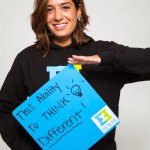 Georgia Mavrogeorgis, SUNY Buffalo
Georgia Mavrogeorgis, SUNY Buffalo
My learning disabilities provide me with the gift of being able to understand and see the world from a different perspective.
I’m more open-minded and accepting of individuals and their differences.
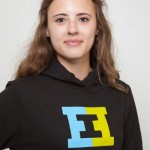 Becca O’Hea, East Carolina University
Becca O’Hea, East Carolina University
Having dyslexia has given me immense patience in having to spend extra hours completing reading assignments, and taught me to be a strong listener to compensate for being a slow reader and writer. I make it a point to tell others about my difference and how it has help me in furthering my career as a student and as a future school psychologist.
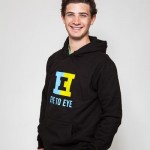 Brandon Odenheimer, University of Denver
Brandon Odenheimer, University of Denver
I have been classified as LD and ADHD since 1st grade. Now I’m in my senior year of college, and I have been able to use my way of learning to succeed in my studies all the way. The ability to share my experiences with others is very rewarding.
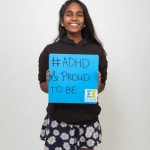 Arthi Selvan, Temple University
Arthi Selvan, Temple University
I’ve struggled a lot with being a different thinker, especially as a science major. To me, being a STEM major means you must be the type A personality: organized, efficient, a linear thinker, competitive. However, my learning difference benefits me. I have the ability to see and approach problems differently than most STEM majors do. I sometimes feel like I have a secret super power because of my ability to think differently.
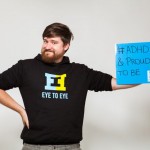 Sam Solomon, University of Wyoming
Sam Solomon, University of Wyoming
Nobody ever told me bluntly, that I was doing it “wrong.” But after a lifetime of little corrections and criticisms about how you think and live, you start to hear it. It takes a lot of courage, a lot of self-love to truthfully tell yourself that your habits and flaws and quirks are wonderful. It isn’t about fixing yourself. You have to form an alliance with your learning style.
Learn More about Eye to Eye
Eye to Eye on Social Media
Join Eye to Eye’s Email List:
- Find us on our site or text LearnOn to 22828 (regular mobile charges apply.)
Blog articles provide insights on the activities of schools, programs, grantees, and other education stakeholders to promote continuing discussion of educational innovation and reform. Articles do not endorse any educational product, service, curriculum or pedagogy.


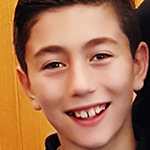





 Josh Dishman, Radford University
Josh Dishman, Radford University








